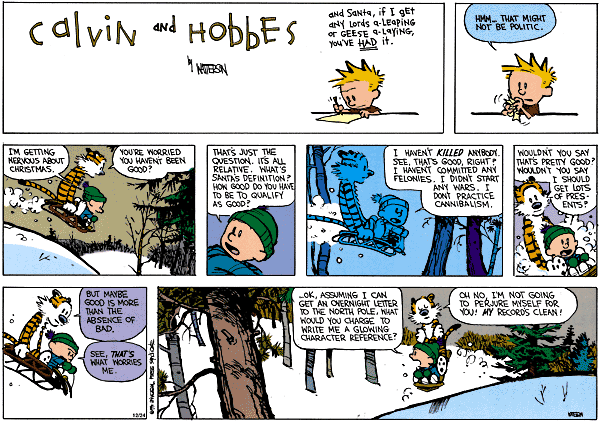Always relevant—
Reading 1
Rom 13:8-10
Brothers and sisters: Owe nothing to anyone, except to love one another; for the one who loves another has fulfilled the law. The commandments, You shall not commit adultery; you shall not kill; you shall not steal; you shall not covet, and whatever other commandment there may be, are summed up in this saying, namely, You shall love your neighbor as yourself. Love does no evil to the neighbor; hence, love is the fulfillment of the law.
I always find it interesting that Paul’s letters were written before the Gospels. This passage reflects Jesus’ teaching, but isn’t citing any particular passage we’re now familiar with. It shows a continuity of belief from the earliest days of Christianity.
Responsorial Psalm
Ps 112:1b-2, 4-5, 9
R. Blessed the man who is gracious and lends to those in need.
Blessed the man who fears the LORD,
who greatly delights in his commands.
His posterity shall be mighty upon the earth;
the upright generation shall be blessed.
R. Blessed the man who is gracious and lends to those in need.
He dawns through the darkness, a light for the upright;
he is gracious and merciful and just.
Well for the man who is gracious and lends,
who conducts his affairs with justice.
R. Blessed the man who is gracious and lends to those in need.
Lavishly he gives to the poor;
his generosity shall endure forever;
his horn shall be exalted in glory.
R. Blessed the man who is gracious and lends to those in need.
This Psalm is an early version of the command Paul issued in today’s letter. Yes, we’re blessed for following the law, but that’s just the start of it. Being generous beyond what’s required is something we should all aspire to.
Alleluia
1 Pt 4:14
R. Alleluia, alleluia.
If you are insulted for the name of Christ, blessed are you,
for the Spirit of God rests upon you.
R. Alleluia, alleluia.
The Gospel and the 1st reading don’t really seem very related; we’re just plowing through Romans and Luke, I guess. This Alleluia is the only gear shift we get today.
Gospel
Lk 14:25-33
Great crowds were traveling with Jesus, and he turned and addressed them, "If anyone comes to me without hating his father and mother, wife and children, brothers and sisters, and even his own life, he cannot be my disciple. Whoever does not carry his own cross and come after me cannot be my disciple. Which of you wishing to construct a tower does not first sit down and calculate the cost to see if there is enough for its completion? Otherwise, after laying the foundation and finding himself unable to finish the work the onlookers should laugh at him and say, 'This one began to build but did not have the resources to finish.' Or what king marching into battle would not first sit down and decide whether with ten thousand troops he can successfully oppose another king advancing upon him with twenty thousand troops? But if not, while he is still far away, he will send a delegation to ask for peace terms. In the same way, everyone of you who does not renounce all his possessions cannot be my disciple."
This passage seems to be a collection of sayings (most of which are unique to Luke), rather than a coherent speech. They’re grouped together because they focus on the total dedication necessary for a disciple of Jesus.
One message that’s not unique1 is the part about “hating” your father and mother, etc. We talked about Matthew’s version way back in July.
Jesus isn’t saying we shouldn’t love our parents or kids; that would contradict just about everything else Jesus says elsewhere. He wants us to love our family and friends and everyone.
He also wants us to love the One who gave them to us. God is the one who put those people in our lives, who gave us life itself. Our gratitude should go back to the source of everything. And in that gratitude and love, that’s where we’ll end up, too.
Love, after all, is the fulfillment of the law. Hey, I guess this Gospel does tie into today’s first reading after all!





